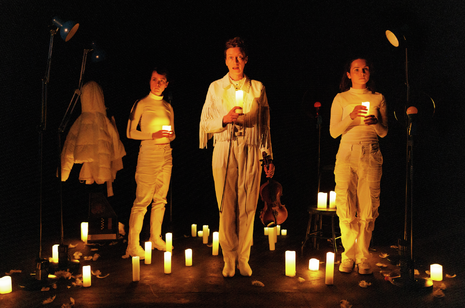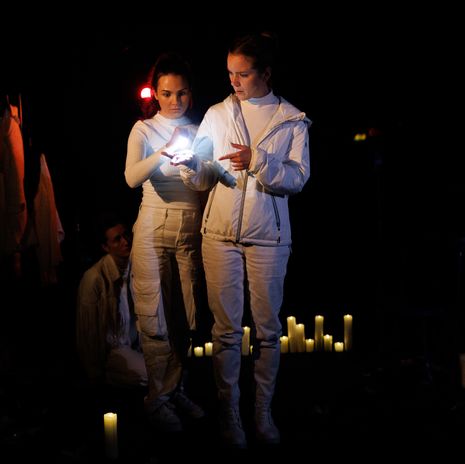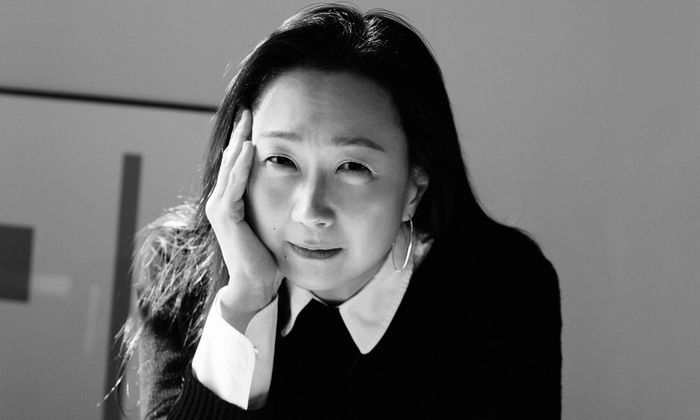How to write the perfect ghost story with playwright Aisha Zia
With spooky season in full swing, Ella Howard talks all things scary with Aisha Zia ahead of her upcoming production, More Ghost Stories in Candlelight

Whilst our conversation may have lacked the dark and moody atmosphere of a campfire – taking place on a bright September afternoon – Aisha Zia nevertheless managed to immerse me in the world of shadows and spirits. The Edinburgh-fringe-winning playwright is one of four writers for the production More Ghost Stories In Candlelight, a continuation of last year’s much-loved night of spooky stories and haunting music. The show is set to be in Cambridge on the 26th October, performed in Old Divinity Hall and directed by Emily Ling Williams.
“Danger can be in your own home”
Upon her return to Cambridge, I am keen to hear about Zia’s artistic vision this time around. “I wanted to do something a bit different”, she begins, and indeed, there will be no dark woods or haunted Victorian mansions in her non-traditional “urban ghost story”. Consequently, my presumption that the Cambridge-based play will feature the city’s beautiful gothic chapels and medieval courts is quickly banished. “Danger can be in your own home”, she declares, although it is not quite the home I expected. This surprise appears to be Zia’s aim, for she “quite likes the idea that [her protagonist] lives near a McDonalds and a Lidl, as it’s not where you’d expect a ghost to be”.
Realism is clearly important to Zia, for as she explains: “I just think about the horrors in the world now, that we’re living in […] I wanted to draw on things that genuinely frightened me in the world”. This perspective resonates with me, in particular her belief that “for women the world is a scary place anyway”. This leads into another way in which Zia breaks from convention, for I am interested in her protagonist: a female detective who she hopes will challenge the male-dominated and “very-english” tropes of the genre. “That was really important to me, to not have a white main character”, she stresses, for “every culture has a ghost story, and ghosts serve a different function in different cultures”. Of course, supernatural spirits are not always the revenge-seeking spectres of Hollywood films but can also be consolatory, benevolent beings, providing ancestral guidance and wisdom to the living.
“Every culture has a ghost story, and ghosts serve a different function in different cultures”
Yet the playwright hasn’t completely thrown all rules out the window, still applying the tried and true horror “formula”. She admits that “structurally, it’s a bit more traditional storytelling”, where “you have to set something up” and “plant things that the reader is fed, like tension”. To write the perfect ghost story, the author must resist the “really good fun” of the grand reveal, slowly laying the groundwork with “quite a lot of logic and quite a lot of reason”.
Zia is “really into monologues”, describing them as a “really interesting way to tell stories”; this fits neatly into the production’s emphasis on non-traditional storytelling. Anna Pool, the show’s sound designer, has directed the actors to “play the sound” themselves, making all the effects without the use of pre-recorded stock audios. Similarly, set designer Mona Camille has gone for “very little to no lighting in the show”, creating a candlelit atmosphere that Zia describes as “really quite eerie”. As a result, the “intimate” production mimics the “warm, cozy and secure” feel of a “campfire” ghost story.

I ask her if, like around a campfire, she anticipates any audience interaction. Zia laughs, telling me it “depends how wild we get in rehearsal.” Nevertheless, she “hopes there’s some gasps”, maybe even “some people fainting!”. She mentions that the play is set to perform in Shakespeare’s Globe - a venue known for its often loud and unruly audience - declaring “let’s have a bit of rowdiness”.
Despite my best efforts to discover some more details about the play, Zia keeps things under wraps, maintaining an air of mystery as to not spoil her ghostly surprise. And so, in the words of Aisha Zia, “I will say no more”.
 Features / How sweet is the en-suite deal?13 January 2026
Features / How sweet is the en-suite deal?13 January 2026 Arts / Fact-checking R.F. Kuang’s Katabasis13 January 2026
Arts / Fact-checking R.F. Kuang’s Katabasis13 January 2026 News / SU sabbs join calls condemning Israeli attack on West Bank university13 January 2026
News / SU sabbs join calls condemning Israeli attack on West Bank university13 January 2026 Comment / Will the town and gown divide ever truly be resolved?12 January 2026
Comment / Will the town and gown divide ever truly be resolved?12 January 2026 News / 20 vet organisations sign letter backing Cam vet course13 January 2026
News / 20 vet organisations sign letter backing Cam vet course13 January 2026










